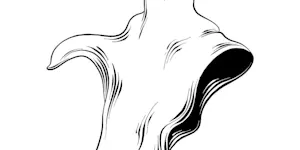What Makes This Word Tick
Hebetude refers to a state of dullness, lethargy, or mental inactivity. It's the kind of word you might employ when a simple "tired" just won't do. Imagine feeling as though your brain is wrapped in cozy, albeit dense, cotton – that's hebetude in full swing.
If Hebetude Were a Person…
If hebetude were a person, it'd likely spend its days lounging on the couch, remote in one hand and a slightly stale cookie in the other. It’s not too concerned with the hustle and bustle of life, preferring instead to exist in a self-contained cloud of contented lethargy.
How This Word Has Changed Over Time
Originating from the Latin 'hebes,' meaning 'dull,' hebetude has kept its initial meaning of mental dullness. While it’s never quite topped popularity charts, it’s remained a favorite among those keen on precise and descriptive language, handy for poking fun without being overly harsh.
Old Sayings and Proverbs That Use Hebetude
Admittedly, hebetude doesn't appear in any old sayings or proverbs, but it fits right alongside wise words warning against idleness or the dangers of a wandering mind. It's the literary equivalent of a gentle nudge to get up and shake off the cobwebs.
Surprising Facts About Hebetude
Despite its sleepy connotation, hebetude is a word with surprising liveliness in the world of crossword puzzles, beloved by those who enjoy the intricate play of letters. It hasn’t found its way into many speeches or mainstream conversations but has that definite wow factor at dinner parties.
Out and About With This Word
Hebetude is a perfect fit for those moments on a lazy Sunday afternoon, when even thinking feels like a chore. It's a plush holiday in word form, and once you’ve invited it into your vocabulary, you might just find it cropping up whenever a nap seems more appealing than a busy to-do list.
Pop Culture Moments Where Hebetude Was Used
While hebetude hasn’t exactly had a starring role in pop culture, you can imagine it lurking in the background of any scene where lethargy rules. Picture it gently waving from the back row of a sleepy morning sitcom or subtly influencing the sluggish tempo of a classic '90s slacker film.
The Word in Literature
The literary world often embraces words like hebetude to describe languorous characters or slow-moving plot points. It’s the kind of word that might find a comfortable home in the detailed musings of a 19th-century novelist or peppered throughout a mystery filled with fog and suspense.
Moments in History with Hebetude
Though hebetude itself might not have a historical cameo, its essence encapsulates those times of widespread ennui, such as the lull after wartime or even during the 1970s energy crisis. Imagine a moment when society collectively sighed, took a seat, and let the world turn a bit more slowly.
This Word Around the World
While hebetude is distinctly English, the concept of mental dullness resonates universally. In French, you might find "torpeur" capturing a similar essence. These words remind us that no matter where you are, everyone sometimes goes a bit slack under life's weight.
Where Does It Come From?
Hebetude has its roots deeply planted in Latin, drawing from 'hebes,' which means blunt or obtuse. Over the centuries, it crept into English, maintaining its Latin charm and taking root among the cultivated vocabulary of English speakers appreciative of its specificity.
How People Misuse This Word
People occasionally mistake hebetude for 'habitual tardiness' or confuse it with everyday laziness. But remember, true hebetude hones in on that unique blend of mental dullness, where even entertaining thoughts seems an ambitious leap beyond capability.
Words It’s Often Confused With
Lethargy: While hebetude speaks to dullness and mental inaction, lethargy leans more towards physical sluggishness.
Stupor: Stupor suggests a deeper, more profound lack of awareness, often due to external factors like medication or shock.
Inertia: While inertia refers to resistance to change or motion, it's more about physical state than mental clarity.
Additional Synonyms and Antonyms
Synonyms for hebetude include torpor, languor, and listlessness. Antonyms would be alertness, vigor, and liveliness — all championing the opposite state of being mentally or energetically fully engaged.
Want to Try It Out in a Sentence?
"After a hefty Thanksgiving meal, hebetude settled over the family, rendering even the thought of pie a bit burdensome."
















